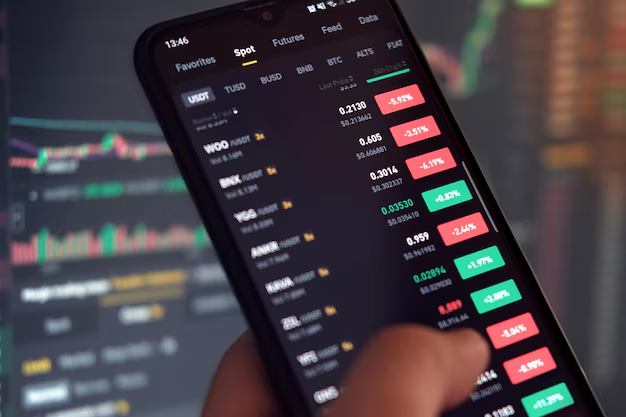Unlocking Robinhood: Understanding Fees on the Platform
Investing in stock markets is becoming increasingly accessible, with apps like Robinhood pioneering the way. With its promise of commission-free trading, Robinhood has appealed to millions of users looking to enter the world of finance. However, a common question arises: Does Robinhood charge fees? In this guide, we’ll delve into what costs may be associated with using Robinhood, related factors affecting these fees, and practical tips for managing expenses effectively.
The Robinhood Fee Structure
Commission-Free Trading: What It Really Means
At the heart of Robinhood's allure is its commission-free trading model. Unlike traditional brokers, Robinhood does not charge a fee per trade—whether you're buying or selling stocks, ETFs, options, or cryptocurrencies. This has democratized investing, attracting a diverse user base from seasoned investors to curious novices.
Regulatory and Administrative Fees
Although Robinhood doesn’t charge trading commissions, regulatory and administrative fees still apply. These are typically small and enforced by governing bodies rather than Robinhood itself. Here’s a breakdown:
- SEC Fees: The Securities and Exchange Commission (SEC) charges a minimal fee per transaction (often less than a cent) to recover the costs of its regulatory activities.
- FINRA Trading Activity Fee: The Financial Industry Regulatory Authority (FINRA) also imposes a minor fee to oversee securities firms.
While these fees are negligible in individual transactions, understanding them helps you grasp the full scope of investing costs.
Additional Services and Charges
Robinhood Gold
For users who require advanced features, Robinhood Gold is available at a monthly subscription fee. This premium tier offers:
- Margin Trading: Borrow money to trade or invest, potentially amplifying returns, but also risks.
- Advanced Market Data: Access to in-depth market analyses.
- Larger Instant Deposits: Quicker access to funds means you can capitalize on opportunities faster.
While beneficial, evaluating whether these features align with your investment strategy is crucial.
Cryptocurrency Trades
Trading cryptocurrencies on Robinhood remains commission-free, yet there's a spread—the difference between the purchase price and sale price. This indirect cost is a key consideration in crypto investments.
How Robinhood Makes Money
It’s reasonable to wonder how Robinhood thrives without charging trading commissions. Here's how they sustain revenue:
Payment for Order Flow
A significant portion of Robinhood's income stems from payment for order flow. This involves receiving payments from market makers for routing trades through their venues. While potentially contentious, this practice allows Robinhood to offer commission-free trading.
Interest on Deposits
Robinhood earns interest on uninvested cash in customers’ accounts. Although deposited funds remain accessible, understanding the implications of this practice contributes to a comprehensive view of your interactions with Robinhood.
Tips for Managing Expenses on Robinhood
📝 Practical Steps for Cost-Efficient Trading
- Regular Research: Stay informed about fees or platform changes by reviewing Robinhood’s updates. Transparency is key.
- Evaluate Premium Options: Consider whether Robinhood Gold justifies its cost against your investment goals.
- Monitor Frequency of Trades: Frequent trading may accumulate regulatory fees, so strategize your transactions.
- Diversify Thoughtfully: Balance commission-free trading advantages with a well-diversified portfolio to minimize risks.
Recognize the Spread
Especially in cryptocurrency dealings, be aware of spreads that can affect your net return. Aim for long-term investments rather than frequent trades to buffer against these hidden costs.
Broader Implications of Using Robinhood
The Democratization of Trading
Robinhood's model has transformed how we approach investing, making it accessible to a broader audience. By eliminating trading commissions, it encourages financial literacy and independence among users.
Considerations for Responsible Investing
Despite its accessibility, Robinhood's ease-of-use can lead to impulsive trading behaviors. Exercising caution and developing a disciplined investment strategy is crucial. Remember, a strategic approach can yield better dividends in the long run.
Visually Distinct Summary
📌 Key Takeaways at a Glance
- Regulatory Fees: Minimal and externally enforced—consider them in transactions.
- Robinhood Gold: Evaluate the cost-to-benefit ratio for advanced features.
- Cryptocurrency Spread: Understand and account for potential hidden costs.
- Informed Decisions: Regular platform updates are pivotal to manage expenses effectively.
- Invest Responsibly: Utilize Robinhood's democratically designed model to foster long-term financial growth.
Robinhood changes the landscape with its user-centric trading approach, though understanding the intricacies of its fee structures remains essential for leveraging its full potential. Whether you're just starting out or growing your investment portfolio, awareness and astute strategy are foundations of financial success.
Embarking on your investment journey with eyes wide open to these factors empowers you to make informed, confident decisions. Remember, while Robinhood simplifies trading, your diligence amplifies its effectiveness.

Related Topics
- Are There Any Good Indexes On Robinhood
- Can I Buy Bnd In Robinhood
- Can I Buy Bonds On Robinhood
- Can I Buy Gold On Robinhood
- Can I Buy Trulieve Stock On Robinhood
- Can I Buy Trump Coin On Robinhood
- Can I Contact Robinhood By Phone
- Can I Day Trade Crypto On Robinhood
- Can I Day Trade On Robinhood
- Can I Day Trade With Robinhood
